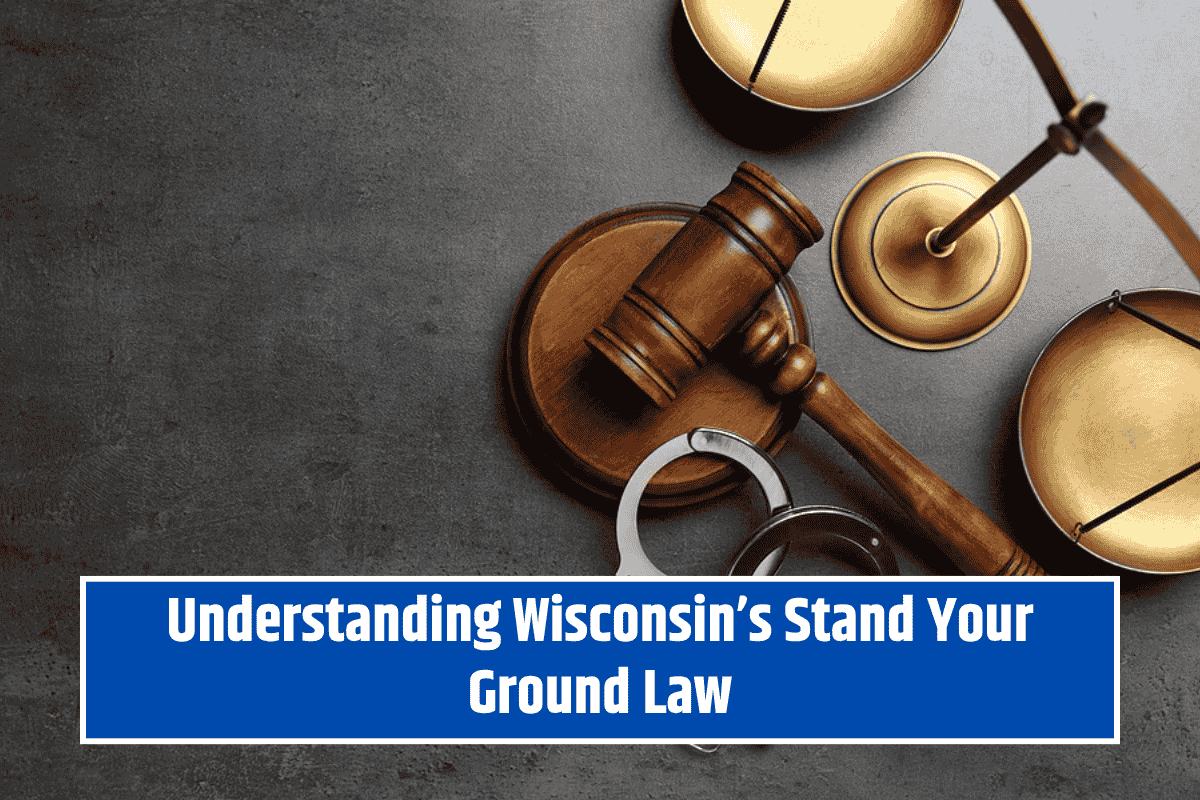When faced with sudden danger, your first instinct might be to protect yourself quickly. However, once the moment passes, many questions arise—Was it legal? Could you face charges? Understanding how Wisconsin’s self-defense laws work is crucial, whether you’re at home, in public, or even in your car. This guide explains your rights, especially with the Castle Doctrine, and the steps to take if you’re ever involved in a self-defense situation.
What Are Self-Defense Laws in Wisconsin?
Wisconsin allows individuals to defend themselves when they are in imminent danger. However, these rights come with specific rules. Unlike some states with Stand Your Ground laws, Wisconsin still requires a duty to retreat when in public. This means that if you’re in a public place and can safely avoid the conflict, you must do so before resorting to force.
The law permits you to defend yourself, others, or property—but only if your actions are deemed “reasonable.” Using excessive force or going beyond what is necessary can lead to criminal or civil charges.
What Is the Castle Doctrine?
The Castle Doctrine is an important part of Wisconsin’s self-defense laws. It grants you the right to defend yourself in certain places, such as your home, car, or business, from unlawful intruders—using deadly force if necessary. The key here is that you’re not required to retreat in these spaces, unlike in public places.
The Castle Doctrine assumes that if you used force to protect yourself in your home, car, or business, your actions were likely reasonable. However, it only applies under specific conditions. For instance, if the person who entered your property is legally allowed to be there (e.g., a family member or tenant), the Castle Doctrine does not apply. Additionally, if you were engaged in illegal activity when the incident occurred, you might lose your right to claim self-defense under this law.
What Happens If You’re Charged After Defending Yourself?
Even if you acted in self-defense, police and courts will examine the situation carefully. If they believe that your actions went beyond what is legally allowed, you could face criminal charges. Moreover, the person you defended yourself against—or their family—might take civil action against you by filing a lawsuit for damages.
This is why it is essential to prove that your actions were both legal and reasonable. Having a skilled attorney is vital in making sure you present the best case possible and protect your rights.
Steps to Take After a Self-Defense Incident
If you find yourself involved in a self-defense situation, it’s crucial to take the right steps to protect yourself legally. Here’s what to do:
- Contact a lawyer immediately. Don’t try to handle the situation alone.
- Document everything. Write down the details of the incident while it’s still fresh in your mind.
- Limit what you say to police. Avoid making statements until your lawyer is present.
- Collect witness information. Get the names and contact information of anyone who saw what happened.
Having legal representation from a firm like Singleton Law can help ensure that you don’t say or do anything that could hurt your defense.
How Singleton Law Firm Can Help
Attorney Justin Singleton and his team understand the stress and uncertainty that comes after a self-defense incident. They specialize in defending people who were simply trying to protect themselves. Singleton Law Firm can help explain the laws, defend your rights, and guide you through every step of the legal process. Their primary goal is to bring you peace of mind and fight for the best possible outcome.
Whether you’re facing criminal charges or a civil lawsuit, Singleton Law Firm is dedicated to protecting your freedom and future.
Acting quickly to protect yourself during a dangerous situation is natural. However, what happens after the moment can be just as important. In Wisconsin, understanding the difference between legal self-defense and unlawful force is key to avoiding serious legal trouble. The Castle Doctrine offers protection in places like your home or car, but the law is complex and can vary based on the situation. If you find yourself in such a scenario, having an experienced lawyer by your side can make all the difference. Singleton Law Firm is here to support you, guide you, and fight for your rights when it matters most.
